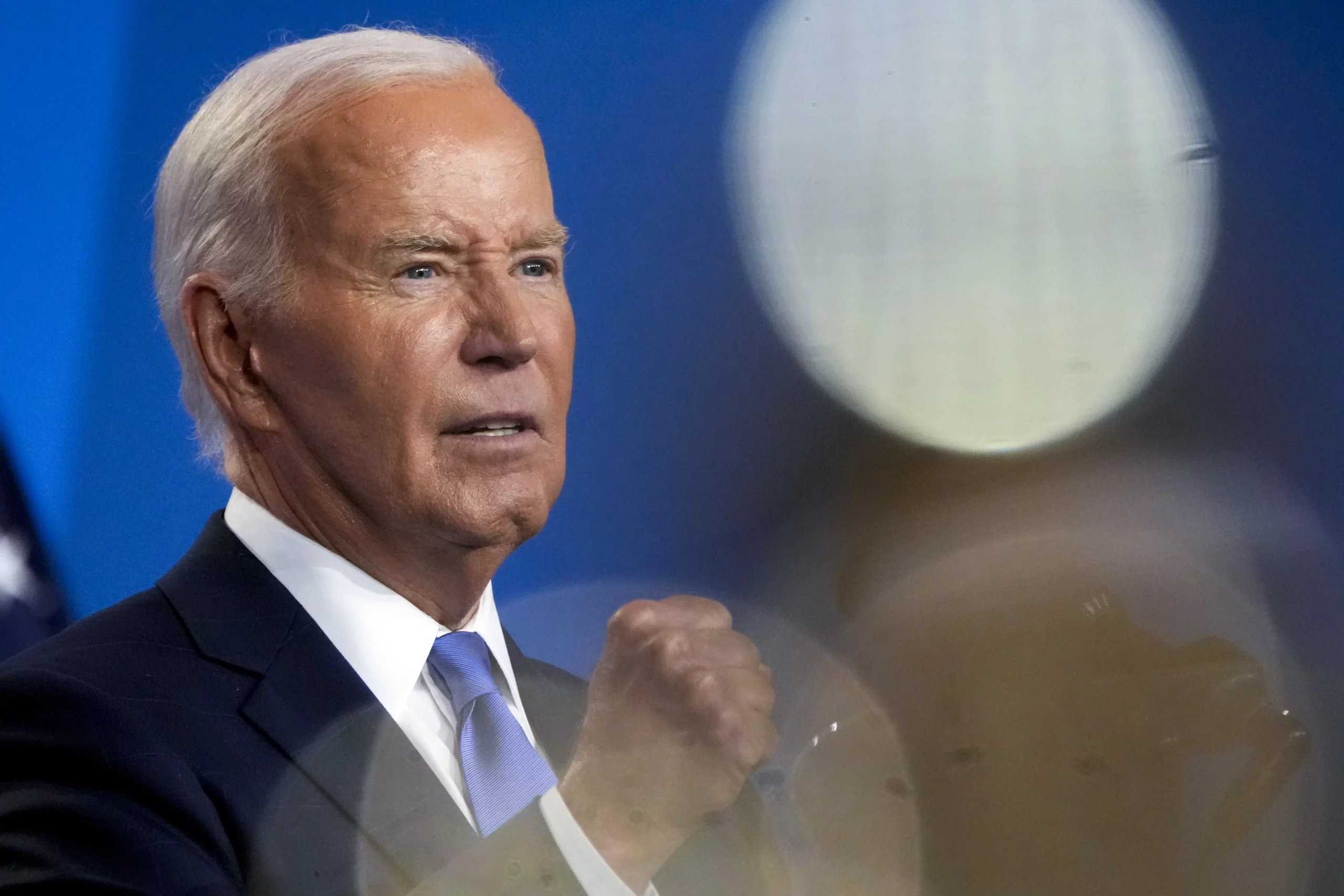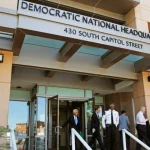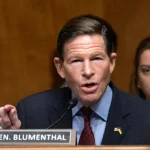

As a growing chorus of lawmakers continues to call on President Joe Biden to step aside as the party’s nominee, several prominent Democratic lawmakers and operatives are discussing and publicly endorsing the idea of an open nominating process at the Democratic National Convention.
Sen. Jon Tester (D-MT) became the second Democratic senator to call on Biden to step aside on Thursday. On Friday, the vulnerable red-state Democrat who is up for reelection in the Senate made it clear he’d like to see an open nominating process at the convention in Chicago next month, and he’s not endorsing Vice President Kamala Harris at this time, according to his office.
Tester’s position is a sign of varying perspectives within the Democratic Party on who should replace Biden if he decides to step aside. In a meeting with fellow California Democrats last week, former Speaker Nancy Pelosi (D-CA) endorsed an open process to choose the party’s next nominee if Biden drops out, according to reporting from Politico.
Jon Reinish, a Democratic strategist, said the party leaders should be listening closely to those lawmakers like Tester who are running in extremely competitive races.
“The party is always served very well when they listen to someone like Sen. Tester, who is a thoughtful, fair, smart, strong person,” Reinish said. “Listen to people whose jobs are on the line. Talking to someone whose state or seat is incredibly safe is less valuable even if they’re a longtime party hand or party official.”
While the Democratic National Committee has been adamant it plans to move forward with its virtual roll call in August despite growing criticism from lawmakers and DNC delegates alike, at least some members of the convention rules committee have discussed the hypothetical, according to a source familiar. If Biden were to drop out of the race, the committee would be forced to decide whether or not to move forward with a virtual roll call at all.
While political conventions typically serve as a coronation of the candidate that has already won the most delegates during the primaries, it wasn’t always that way.
“We haven’t seen it in a while, an open convention, but it used to be the norm, rather than the exception,” Casey Burgat, an assistant professor and director of the legislative affairs program at George Washington University, said. “We didn’t have the primary process as we know it today, and delegates would go to their national convention with not even a good idea of who would ultimately come out of there as their party’s nominee.”
The Democratic Party hasn’t had an open convention since 1968 during disputes over the Vietnam War. If Biden were to leave the race, he would surrender the delegates he won during the primary, leaving them free to back someone else. To secure the party nomination, a candidate needs 1,976 delegate votes. Biden has already received almost 4,000.
If there is no predetermined nominee, the process would begin at the convention in which delegates, once tied to Biden, would be able to cast their votes for an alternative candidate. The delegate voting process is spelled out in Democratic Party rules. If Biden were to decide not to run, there could be an accelerated presidential primary where candidates are attempting to woo the approximately 4,700 convention delegates.
At the convention, each candidate would be allowed 20 minutes of supporting speeches from the people nominating them, and then there would be a roll call vote by states in alphabetical order.
“This is where the smoke-filled backrooms idea comes from because that’s where the backroom negotiating and horse trading came into play to try to eventually rally all of the states, or at least enough of the states and delegates, to choose a nominee,” Burgat explained.
While the president and his campaign remain defiant and insisted they would be pressing ahead, Burgat believes it’s likely Harris’s team is already making contingency plans. If Biden were to decide to drop out, it would set off a major series of events no one has seen in more than 50 years.
“I’d be very, very, very surprised if it hasn’t happened yet, behind the scenes where they’re working with state delegations and gauging their interest in supporting [Harris] if it comes to that,” he said.
Reinish believes an open convention would be the best course of action if Biden were to step aside.
“I think this idea of a healthy competition that brings people in, makes them feel invested, brought in. We’ve seen this phenomenon for a year plus where our own voters are not feeling like they are being listened to,” he explained. “I think the idea of, in some sort of controlled way, the best and brightest in the party, giving people a choice will just result in incredible energy and enthusiasm.”
CLICK HERE TO READ MORE FROM THE WASHINGTON EXAMINER
Not everyone agrees with Reinish’s point of view. Some worry that an open convention would risk further dividing the party.
“I think putting more fighting on display is not a good image for our party and could amount to pure chaos,” a Democratic operative, speaking on the condition of anonymity to reflect candidly on the situation, said. “If Biden does decide to step aside, our party should swiftly ensure Harris is the successor.”





